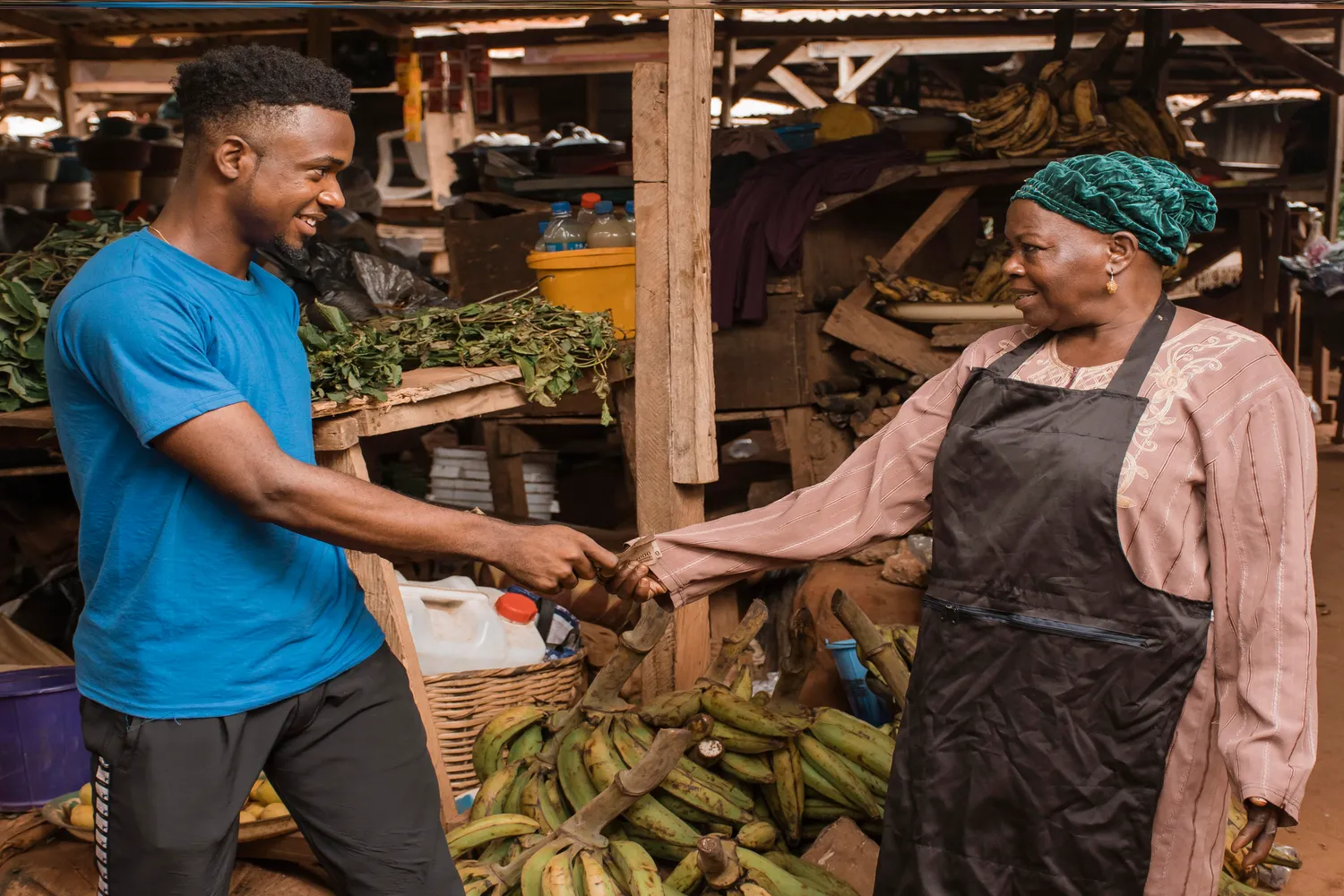Nigeria’s lively and varied market offers businesses many chances to succeed. Different kinds of people do, however, bring their own set of problems. As business owners, you must figure out how to sell to people in other parts of Nigeria. To be successful, you need to understand the differences between these areas. This piece aims to show you the problems of selling to different parts of Nigeria and give tips on fixing them. You can build a strong presence across the country and make the most of your business by tailoring your strategies to the unique needs of each area.
Understanding regional differences
Before dealing with the problems of selling to different parts of Nigeria, you need to know what makes each part unique. Nigeria has many other countries, languages, and economic situations, which all affect how people act and what they like.

- Different cultures: It is possible to find more than 250 ethnic groups in Nigeria. Each has its traditions, customs, and beliefs. Because of the various cultures, what works in one area might not work in another. For example, people in the predominantly Muslim Northern region might have different shopping habits than people in the predominantly Christian Southern region. It’s important to understand these cultural differences to ensure that your marketing plans and products meet the needs of each area.
- Differences in the economy: The economy is also very different in different parts of Nigeria. People in business hubs like Lagos in the south and Abuja in the central region may be able to afford more expensive goods, but people in other areas may be more price-conscious. You can better meet your customers’ wants and get a more significant market share if you change your pricing strategy to reflect how the economy works in each area. If you understand and accept these differences, you can better deal with the problems when selling to different parts of Nigeria.
Understand the differences in the economy.
When trying to figure out how to sell to different parts of Nigeria, it’s essential to understand the differences in economic conditions. Other parts of the country have very different economies, which affects how you should go about your sales plan.
- Buying power varies: In Nigeria, places like Lagos and Abuja have more business and wealth than other areas. People who live in these places usually have more money to spend, so they may be more willing to buy high-end goods and services. On the other hand, people in places like the Northeast or some rural areas may have lower average wages, which means that price is more important to them. Being aware of these variations in buying power lets you adjust your price and product lines to fit the particular economic conditions of each area.
- Getting to financial services: Not everyone in Nigeria has the same access to banking services. Banks, credit facilities, and digital payment systems are usually easier to get to in cities. This access makes transactions go more smoothly and can help with more complex sales strategies, like giving customers the choice to pay over time or on credit. In contrast, people in rural places may use cash more often and have less access to banking services. You can get around some of the problems of selling to people in different parts of Nigeria by changing how people pay to account for these differences.
Problems with logistics
For a business that wants to reach more people, it’s essential to know how to deal with the logistics of selling in different parts of Nigeria. Nigeria’s varied environment and uneven infrastructure create unique problems that must be carefully planned for and solved.
- Changes in the infrastructure: One of the biggest problems with selling to different parts of Nigeria is that the infrastructure is very different. Big cities like Lagos and Abuja have good roads, dependable power, and easy access to ports. These benefits make it easier for goods and services to move around, which helps meet customer needs quickly. On the other hand, infrastructure can be a big problem in rural or less developed areas. It can be hard to send goods quickly if the roads aren’t in good shape, you can’t get reliable transport, or the power goes out often. To get around this, you should spend money on specialised shipping solutions, like working with local transport companies that know the area and the problems that come with it.
- Network for distribution: Another important factor is building a strong delivery network. Because each area and landscape is different, there is no one-size-fits-all solution to distribution. It would help if you came up with a flexible distribution plan that can be changed to fit the needs of each area. This could mean setting up regional warehouses, working with local distributors, or even finding ways to send directly to customers in places with limited stores. You can ensure that your goods get to your customers quickly and reliably by ensuring your distribution network is set up to handle the unique logistics of each area.
Fixing these logistical problems is essential for selling in Nigeria’s different areas. By planning for and knowing about changing infrastructure and building a solid distribution network, you can circumvent these problems and better serve customers nationwide.
Differences in Law and Regulation
Another essential part of dealing with the problems of selling in different parts of Nigeria is figuring out the rules and laws that apply to each area. Other areas may have different laws and regulations affecting your business.
- Different rules and regulations: In Nigeria, the rules that apply to each state can differ. Some states have stricter rules about how businesses can run, how the environment should be treated, and how workers should be treated. One example is that Lagos State might have different environmental rules, tax responsibilities, and licence requirements than a state in the north. To deal with the problems when you try to sell in other parts of Nigeria, you must study and understand how the rules work in each target market. To do this, you must know about the latest local laws and regulations and work with lawyers who can advise and ensure you follow the rules.
- Following the law and making it happen: Law enforcement, which can also differ from one area to the next, adds another level of complexity. There may be places where business rules are strictly enforced and places where they are less strict. These differences can affect your plans for operations and risk management. For example, following labour rules is more closely watched in some areas, so you must change how you hire people. Additionally, knowing how the law is enforced in your area can help you anticipate possible legal problems and take action before they happen.
Knowing about and adapting to the rules and laws in each area can help you better handle the difficulties of selling to different parts of Nigeria. Following local regulations and understanding how they are enforced in other regions are essential for building a successful and long-lasting business presence nationwide.
Market competition
When dealing with the problems of selling in different parts of Nigeria, it’s essential to know how the market is competitive. The level of competition in each area is different, which can significantly affect your business plan.
- Nearby competitors: In different parts of Nigeria, you will encounter local rivals who are very strong in their markets. Customers, suppliers, and other important people in these businesses often have long-lasting ties with them. They know more about the area’s customs, tastes, and subtleties than people from different places. You need to learn about and study these local competitors to perform well. Find their strengths and flaws and where your product or service can fill those gaps. You can stand out by ensuring that your products and services fit the needs and tastes of each area.
- Preferences by Region: Different areas have different tastes, adding another level of market competition. What works in one area might only sometimes work in another. For example, a marketing plan that works well in the southwestern part of Nigeria might work better in the northern part. To deal with these problems, you need to ensure that your marketing and sales strategies are tailored to the needs of each area. This could mean changing the qualities of your product, how you price it, or how you promote it. To stay ahead of the competition, you must know how each area’s cultural, social, and economic factors affect people’s actions.
To deal with the problems when you try to sell in different parts of Nigeria, you need to know a lot about the competition in those markets, by looking at your local rivals and changing based on what people in that area like, you can make plans that meet the specific needs of each market, which will increase your chances of success.
Taste and preferences of consumers
To deal with the problems of selling in different parts of Nigeria, you must know what people want and how they like their food. Cultural, social, and economic factors shape the tastes and preferences of each area.

- Effects on Culture: Nigeria is a place with many different cultures. People in each area have their rituals, customs, and ways of life that affect what they buy. For instance, people in the southwestern region like hot foods, while people in the northern areas like hearty grains. Styles of clothing, entertainment options, and even ways of talking to each other can be very different. You must be aware of and accept these cultural differences to sell your goods or services. Customers in the area will be more interested in your brand if you make your products fit local tastes and preferences.
- Factors of society and the economy: Each area’s social and economic situation is also critical in determining what people want to buy. People in areas with more robust economies may have more money to spend, making them more interested in high-end goods. In places with less economic action, affordability and value for money might be more critical. Social factors like schooling levels, the number of people living in cities, and access to technology can also affect buying habits. Knowing these forces will help you put your goods or services in the right place. To meet the needs of each area, you should offer a range of products, different pricing strategies, or different marketing messages.
To solve the problems of selling in different parts of Nigeria, you must know much about what people like and don’t like. By understanding the cultural influences and adapting to each area’s social and economic factors, you can make products and marketing plans that appeal to local customers. This will help you enter more markets and be more successful.
Read Also. 9 Best Practices For Successful Event Marketing In Nigeria?
Conclusion
To sum up, getting around the different parts of Nigeria is challenging for businesses. You can reach more customers by understanding these complexities and using what you know about the area. Sign up your business today on our list to reach customers all over Nigeria. Get more attention where it counts!



